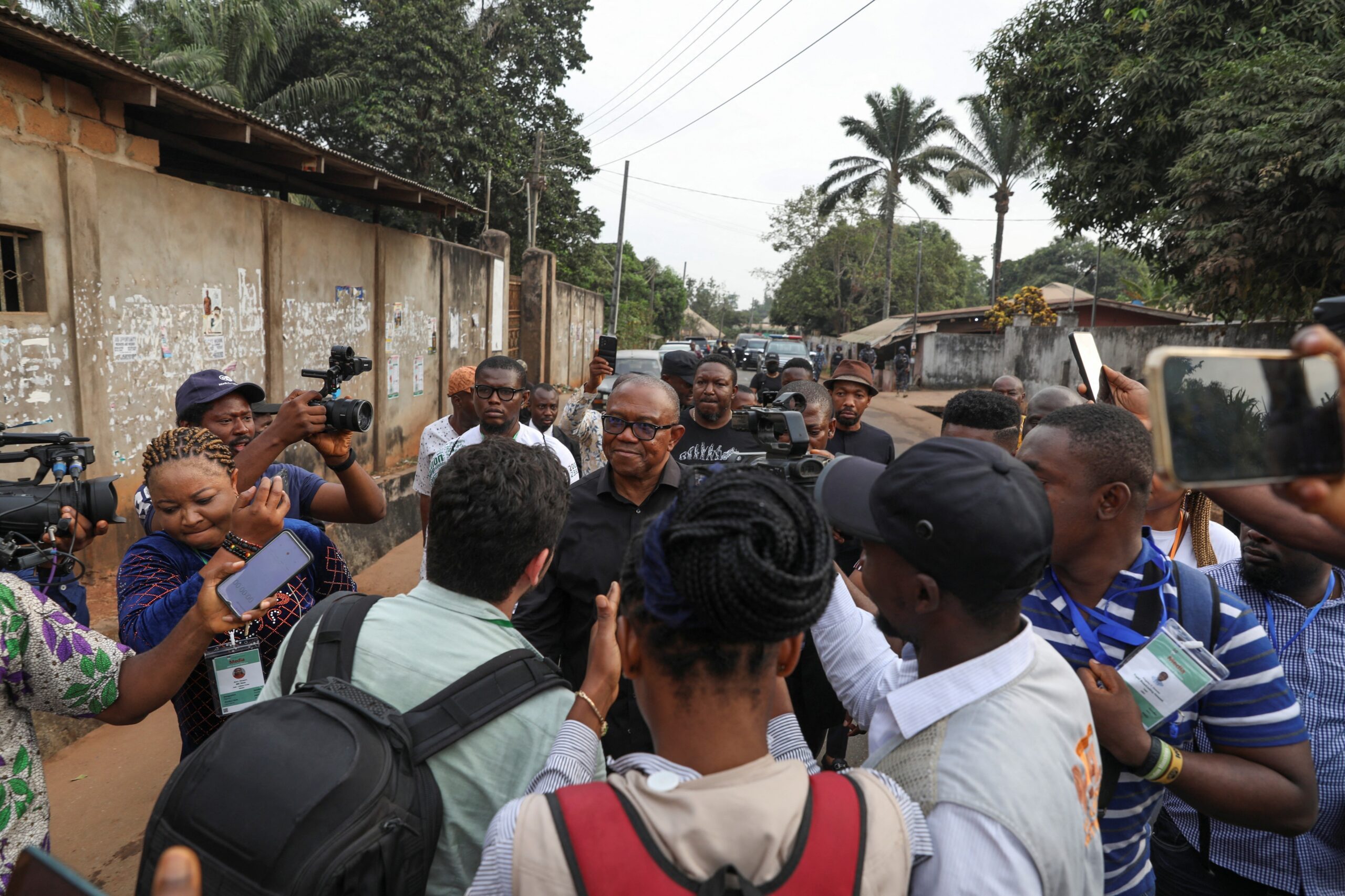SUMMARY
This is AI generated summarization, which may have errors. For context, always refer to the full article.

LAGOS, Nigeria – Nigeria’s presidential election was marked by long delays at some polling stations on Saturday that did not deter large crowds of voters hoping for a reset after years of worsening violence and hardship under outgoing President Muhammadu Buhari.
Reuters reporters at locations across Africa’s most populous country saw a mixed picture, with delays of several hours in some places while voting got underway more swiftly in others.
“As you can see, our people have turned out hugely. Voter enlightenment was high and people are excited to take part in the election,” said voter Emmanuel Nwosu, waiting for his polling station to open in the southeastern city of Onitsha.
“We will wait. They were supposed to start accreditation by 8:30 am but even if they come at 9 pm today we will stay and vote.”
Officials from the Independent National Electoral Commission (INEC) in several states said they had been delayed by the late arrival of vehicles to transport them.
Ngozi Okonjo-Iweala, head of the World Trade Organisation, said on Twitter that her polling station in her home village in southeastern Abia State opened about three hours late.
“The turnout is unbelievable, the largest I have ever seen in all the years I have voted in the village. Young and very old all are here,” she said just after voting.
Buhari, a retired army general, is stepping down after serving the maximum eight years allowed by the constitution but failing to deliver on his pledge to bring back order and security across Nigeria, Africa’s top oil-producing nation.
The candidates from two parties that have alternated in power since the end of army rule in 1999 are facing an unusually strong challenge from a minor party candidate popular among young voters.
With seats in the National Assembly also up for grabs, more than 93 million people are registered to vote at some 176,600 polling stations- which were supposed to be open between 8:30 am and 2:30 pm (0730 GMT to 1330 GMT).
INEC made no comment on the delays, but had said before election day that anyone who joined the queue on time would be able to vote even after official closing time.
The final tally from the 36 states and federal capital Abuja is expected within five days of voting.
Three-way race
The run-up to the vote was marred by violence, with the killing of a senatorial candidate in the volatile southeast region on Wednesday the latest in a series of serious incidents.
The election comes as Nigerians are struggling to cope with a shortage of cash caused by a botched plan to swap old bank notes for new ones that has wreaked havoc on people’s daily lives and has led to scenes of violence at banks and cash machines.
The new president will also have to grapple with problems ranging from high inflation, deep poverty, and energy shortages, to an Islamist insurgency in the northeast, industrial-scale oil theft in the south and rampant crime everywhere.
“I hope that whoever becomes president will alleviate the suffering of the masses,” said Umar Abdullahi, a tea seller waiting to vote in the northern city of Kano.
The main contenders to succeed Buhari are former Lagos governor Bola Tinubu, 70, of the ruling All Progressives Congress, former vice president Atiku Abubakar, 76, of the main opposition Peoples Democratic Party, and former Anambra State governor Peter Obi, 61, of the smaller Labor Party.
All three voted in their home states, surrounded by chaotic scrums of reporters and supporters.
Tinubu and Atiku, as he is known in Nigeria, are both political heavyweights with decades of networking behind them. Both Muslims, Tinubu is an ethnic Yoruba from the southwest and Atiku is a Fulani from the northeast.
Obi, a Christian from the Igbo ethnic group, has less of a political machine but has used a slick social media campaign to generate huge enthusiasm among young voters, with some even calling themselves the “Obidients.”
“INEC says it has introduced new technology and procedures to avoid the fraud seen in previous elections.
Those include a Bimodal Voter Accreditation System (BVAS) that identifies voters using biometric data. Reuters reporters in several locations said INEC officials were struggling to get the BVAS devices to work because of poor network connectivity, while in other places the system was working smoothly.
Despite INEC’s precautions, analysts have warned there are still risks that cash-strapped citizens could be vulnerable to vote-buying attempts by candidates, and a shortage of fuel that could make it hard for INEC to deploy staff and equipment to all areas. – Rappler.com
Add a comment
How does this make you feel?
There are no comments yet. Add your comment to start the conversation.